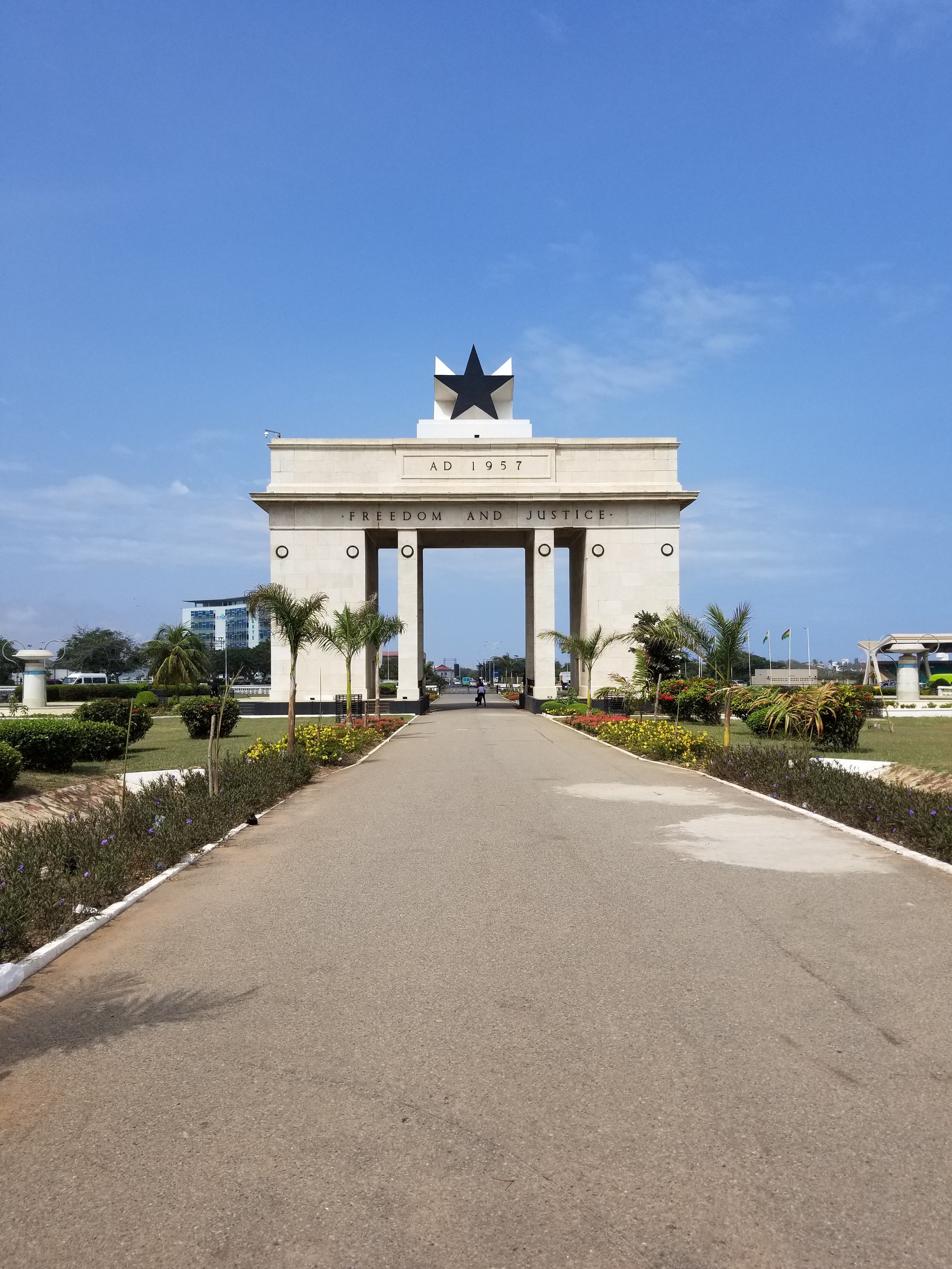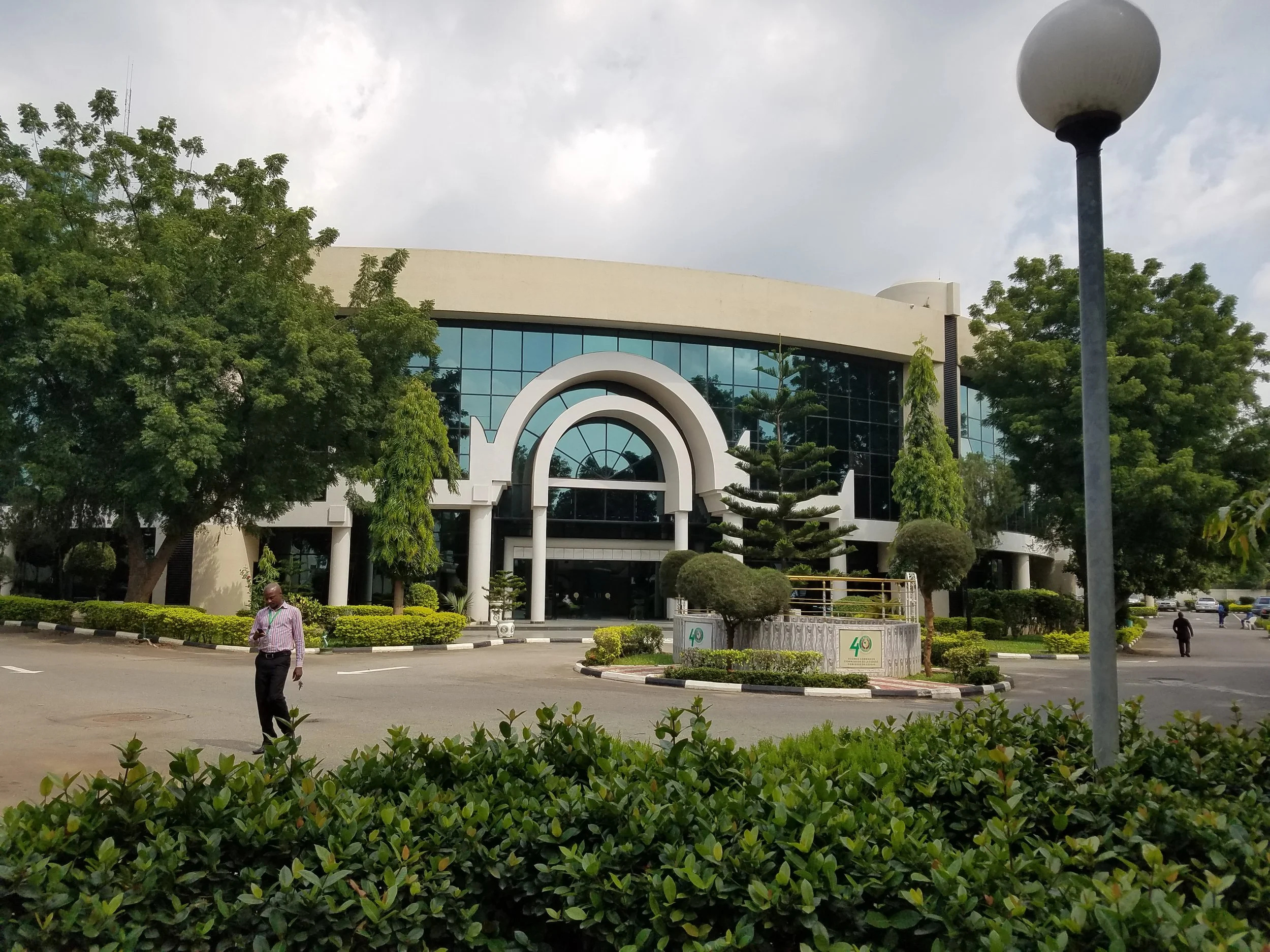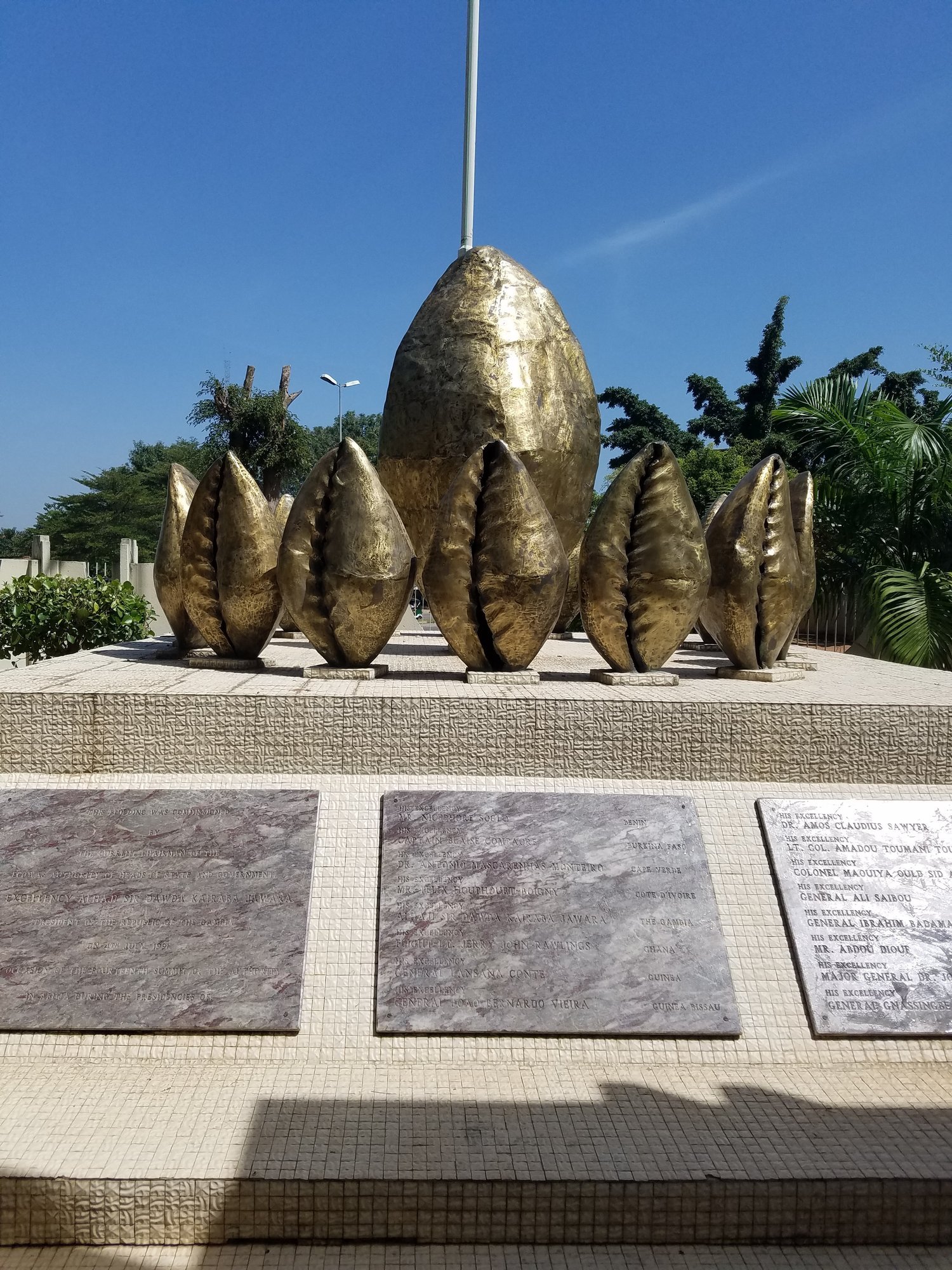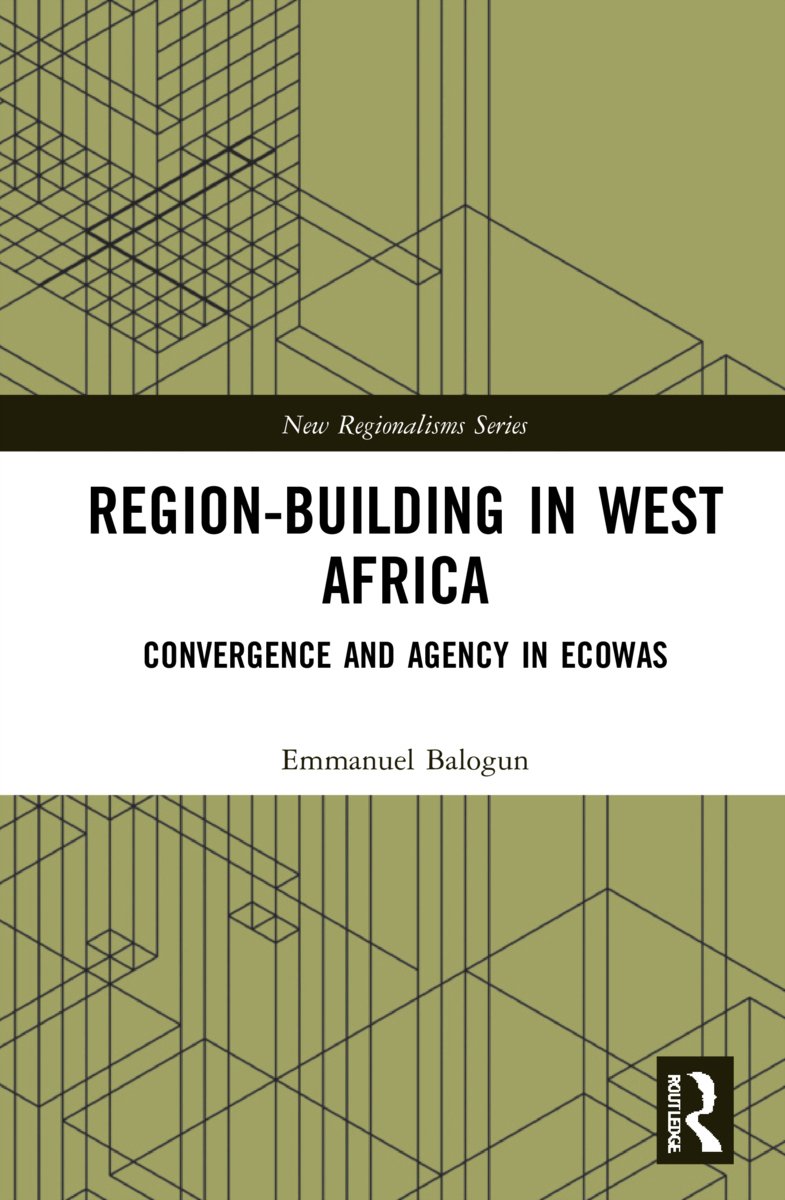About Region-Building in West Africa
"A must-read for scholars and practitioners alike, Balogun’s novel application of practice theory, agential constructivism, and historical institutionalism provides a compelling analysis of the processes and implications of region-building in West Africa."- J. Andrew Grant, Department of Political Studies, Queen’s University, Canada
It’s been a persistent challenge for the Economic Community of West African States (ECOWAS) to manage attempts to subvert constitutional ways to change power like coups. This book looks at the practitioners who do the work of the organization. We can learn so much from their practices, and the agency their work holds. Regional organizations like ECOWAS influence regional governance by collaborating with civil society and other regional stakeholders.
Since its founding in 1975, ECOWAS has adapted over time building bridges between countries and facilitating economic integration toward stability. The institution is set up to allow for these changes to happen over time through numerous instruments:
Policies
Guidelines
Amendments and revisions to treaties
Protocols
Statements
Frameworks
Sanctions
Practitioners in ECOWAS are able to create policies that deepen ties with civilians. They are able to respond to political, financial, and health crises. Interviews with over 125 bureaucrats and heads of state in ECOWAS informed this book, along with 26 interviews with international organizations. Learn more about the research behind the book.
This book may be useful for research and classes in these areas
African Politics
Comparative Regionalisms
International Organizations
Global Governance
Region-Building in West Africa: Convergence and Agency in ECOWAS is forthcoming in print and ebook May 20, 2022 from Routledge.
Emmanuel Balogun, PhD is an Assistant Professor of Political Science at Skidmore College.
He is a fellow for the Council on Foreign Relations where he is serving as a policy advisor in the Department of State. Balogun is the former Diversity, Equity, and Inclusion fellow for Bridging the Gap.
View Emmanuel Balogun’s, Media Kit.
Email to get on the schedule for the 2022-2023 book tour. Now booking virtual and in-person events.
Email: ebalogun@skidmore.edu
Table of Contents
Chapter 1 – Introduction
Chapter 2 – Conceptualizing Convergence and Agency in ECOWAS
Chapter 3 – Convergence and Agency in Peace and Security
Chapter 4 – Regional Convergence in Public Health
Chapter 5 – Regional Convergence in Finance
Chapter 6 – Taking Stock of Convergence and Agency in West Africa
Request a Copy
Reviews
To request a review copy of Region-Building in West Africa: Convergence and Agency in ECOWAS from Routledge / Taylor & Francis Group, please fill out this Media Review Request Form.
Library
Ask the librarian at your local or university library if they take requests. Your library’s website may have a Recommendation form you can fill out. To request a book at your library you may need the following information
Your library member number
Book ISBN: 9781138348325
Book Title: Region-Building in West Africa: Convergence and Agency in ECOWAS
Author’s Name: Emmanuel Balogun
Publisher: Routledge
Year: 2022
If your library is unable to purchase a copy of this book, you may be able to request it through Interlibrary Loan (ILL).
How I did the research
It all started with my dad, Kazeem Balogun, telling me about my Nigerian heritage. I am a 1st generation Nigerian-American. The country he told me about was so different from what I learned in school. His stories sparked my interest in Africa, and ultimately in ECOWAS. When I was traveling to Nigeria for research for this book, it was through my uncle I was able to connect with my 1st of what would become 151 interviews.
From 2016-2019, I did fieldwork in archives and libraries in
Burkina Faso
Ghana
Nigeria
Togo
Thank you to the many ECOWAS Commission officials, bureaucrats and former heads of state, who spoke with me for the 125 open-ended and structured interviews that inform this book. To all the practitioners who keep ECOWAS running, I hope this book helps the world learn from the work you do.
I am also grateful to members of these organizations among others, for their interviews
West African Civil Society Institute (WACSI)
West African Civil Society Forum (WACSOF)
Kofi Annan International Peacekeeping Training Centre (KAIPTC)
ECOWAS Bank of Investment and Development (EBID)
Center of Democracy and Development (CDD)
West African Health Organization (WAHO)
Invite Emmanuel Balogun, PhD to speak with your group or organization. Email ebalogun@skidmore.edu




